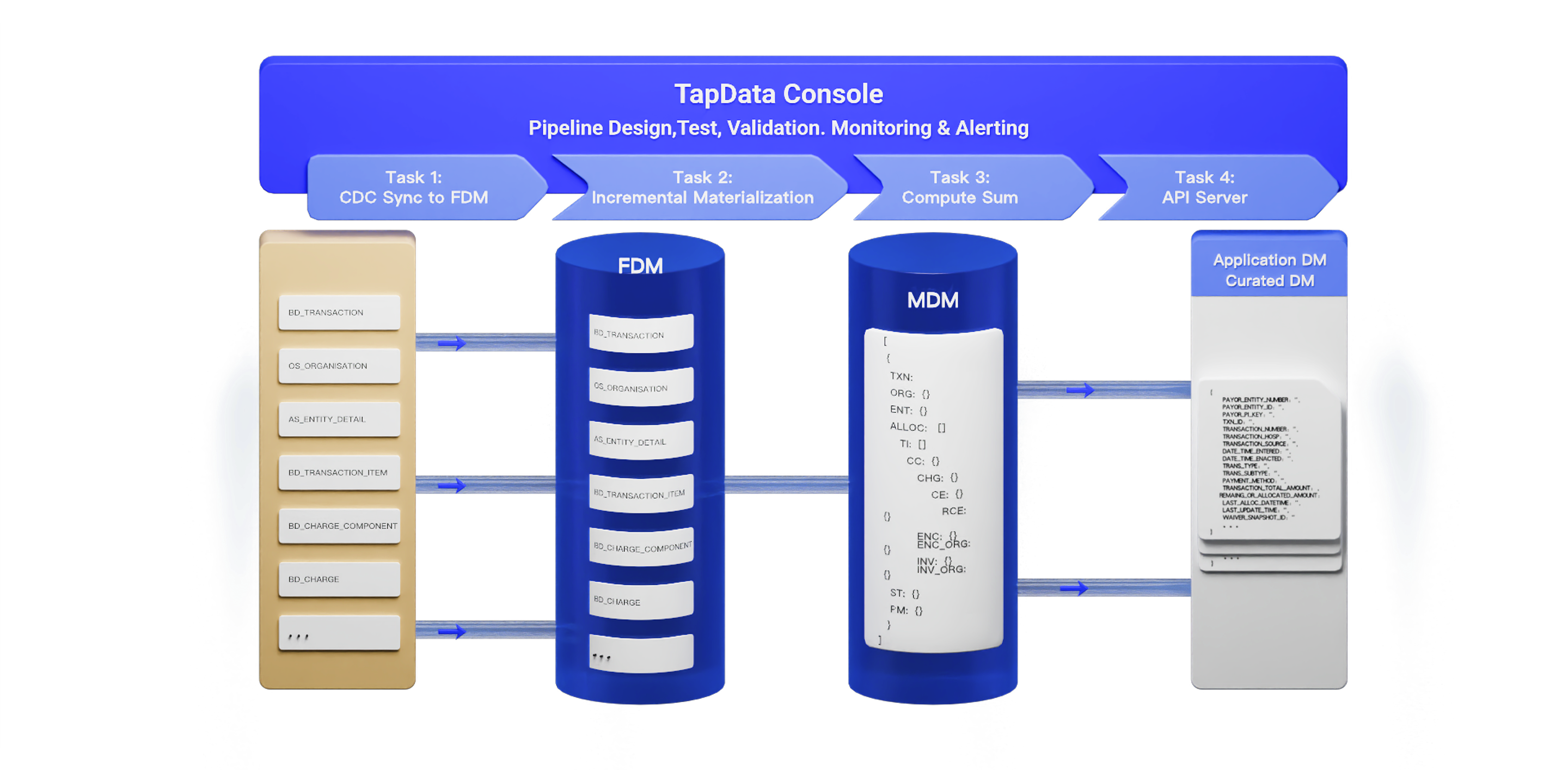
Offload Oracle to MongoDB in Real Time
Reduce load and cost—mirror data to MongoDB with log-based CDC for low-latency reads and APIs.
TapData continuously replicates Oracle change events to MongoDB, turning heavy join workloads into fast, JSON-native queries—without impacting production. Use it to protect your core systems, scale reads horizontally, and power modern apps and APIs.
Why Offload Oracle to MongoDB?
Oracle CPUs and licenses are expensive—read spikes and analytics jobs make it worse.
Protect production: offload reports, search, and APIs to a read-optimized store.
Open a path to modernization—decouple new services from legacy schemas.
How It Works
A real-time replication pattern that streams Oracle changes to MongoDB for low-latency reads, APIs, and operational analytics.

1. Connect & Snapshot — TapData reads Oracle with log-based CDC and performs an initial consistent snapshot.
2. Stream CDC — Changes flow from redo logs in order, preserving transactions.
3. Transform & Model — Map relational tables and joins into JSON documents (or build incremental materialized views for query acceleration).
4. Optimize Reads — Create suggested indexes/shards for target collections; throttle and batch intelligently.
5. Monitor & Heal — End-to-end lineage, alerting, and data validation; pause/resume and re-sync if needed.
Outcomes
Lower Oracle load & license pressure: move heavy reads off core systems.
Faster queries: sub-second reads from MongoDB, even under peak traffic.
Always-fresh data: continuous CDC eliminates T+1 delays.
Developer velocity: JSON models match app needs; fewer brittle joins.
Modernization path: safely decouple new APIs and features from legacy schemas.
FAQ
Q1: How fresh is the data?
Typically, 3~5 seconds, depending on network and workload. CDC streams change continuously
Q2: What if Oracle schemas change?
TapData propagates supported DDL and maps types; incompatible changes are surfaced with alerts and guided fixes.
Q3: Do we write back to Oracle?
This pattern is a read-offload (one-way). For bidirectional sync or phased cutover, use guarded write strategies and conflict policies—our team can advise.

